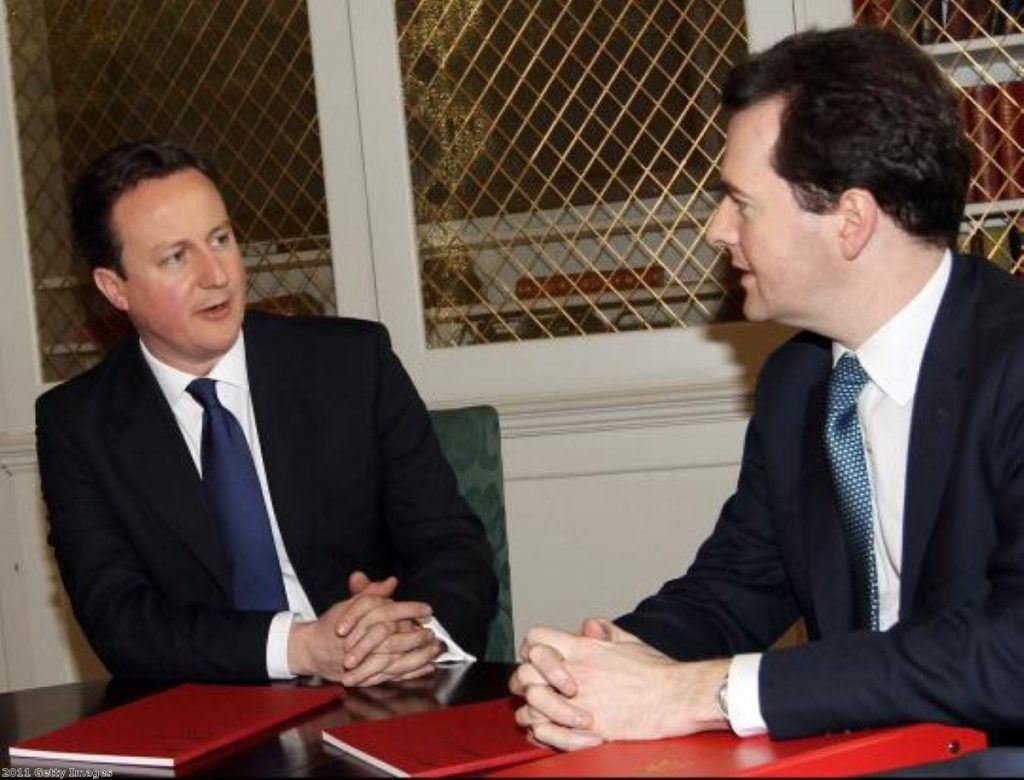Plan D? Davis demands ‘shock therapy’ to end recession
Tory troublemaker David Davis is stealing the headlines from the government's growth strategy with his own calls for "economic shock therapy".
The former shadow home secretary outlined his radical alternative to the government's deficit reduction strategy in a speech in central London, as David Cameron and George Osborne prepared a barrage of measures to revive positive GDP growth this autumn.
Even before parliament got underway this afternoon Davis called for further cuts to both taxes and public spending, alongside a major deregulation drive and measures to force through more bank lending.
He used the language of the opposition to warn of a "lost generation" if bold reforms are not made quickly, but backed Osborne to make the necessary changes before this year's autumn statement.


"He's clever enough, smart enough and brave enough to do what needs to be done," Davis told an audience at the Centre for Policy Studies think-tank.
The outspoken right-winger's criticisms come hard on the heels of criticisms of the government from other Conservative backbenchers.
Last week Tim Yeo questioned whether his party leader was a "man or a mouse" over the Heathrow third runway question, before Brian Binley claimed Cameron was acting like a "chambermaid" to the Liberal Democrats.
The prime minister declared his "fighting spirit" yesterday as he sought to push through a series of measures which will help end Britain's double-dip recession.
Osborne announced he would take on the environmentalists once again by pushing to shake up planning rules, raising the prospect of development on green belt land.
Private sector building projects will be underwritten by the Treasury via new legislation being introduced to parliament this autumn.
Moves to boost the UK's transport infrastructure will also be accelerated. The controversial Heathrow third runway issue will be reopened via an independent commission seeking to establish where an extra runway in the south-east can be built.
Steps to create 'mini-jobs', permitting work without the usual hassles – or benefits – of formal employment are also being reportedly prepared.
"Frankly, I am frustrated by the hoops you have to jump through to get anything done – and I come back to parliament more determined than ever to cut through the dither that holds this country back," Cameron declared in an article for the Mail on Sunday newspaper.
"We have to do more and we have to do it faster," Osborne told BBC1's Andrew Marr Show yesterday.
"They are difficult times for the British economy, difficult times for the world but our economy is healing, jobs are being created, it is taking time, but there is no easy route to a magical recovery."
Labour responded with scepticism, saying that Osborne was offering "no new ideas".
"The chancellor seems desperate to cling on to his failing plan, regardless of the long-term damage the IMF has warned it risks doing to our economy," shadow Treasury minister Chris Leslie said.
Osborne may be feeling the calls for a new approach from his own party more keenly, however.
Davis' demands today included reduced corporation tax, shrink the size of the state to a smaller, "optimal" level and abandoning spending on infrastructure.

